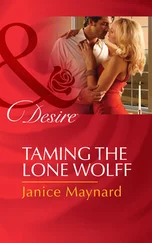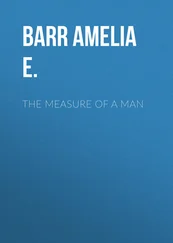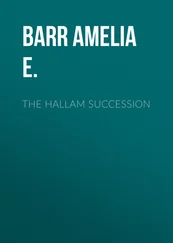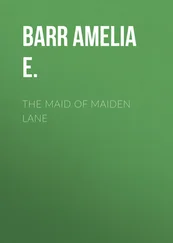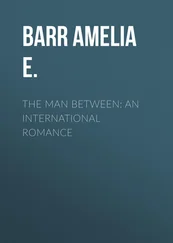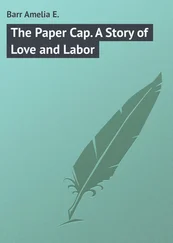Amelia Barr - The Lion's Whelp
Здесь есть возможность читать онлайн «Amelia Barr - The Lion's Whelp» — ознакомительный отрывок электронной книги совершенно бесплатно, а после прочтения отрывка купить полную версию. В некоторых случаях можно слушать аудио, скачать через торрент в формате fb2 и присутствует краткое содержание. ISBN: , Издательство: Иностранный паблик, Жанр: foreign_prose, на английском языке. Описание произведения, (предисловие) а так же отзывы посетителей доступны на портале библиотеки ЛибКат.
- Название:The Lion's Whelp
- Автор:
- Издательство:Иностранный паблик
- Жанр:
- Год:неизвестен
- ISBN:http://www.gutenberg.org/ebooks/50978
- Рейтинг книги:3 / 5. Голосов: 1
-
Избранное:Добавить в избранное
- Отзывы:
-
Ваша оценка:
- 60
- 1
- 2
- 3
- 4
- 5
The Lion's Whelp: краткое содержание, описание и аннотация
Предлагаем к чтению аннотацию, описание, краткое содержание или предисловие (зависит от того, что написал сам автор книги «The Lion's Whelp»). Если вы не нашли необходимую информацию о книге — напишите в комментариях, мы постараемся отыскать её.
The Lion's Whelp — читать онлайн ознакомительный отрывок
Ниже представлен текст книги, разбитый по страницам. Система сохранения места последней прочитанной страницы, позволяет с удобством читать онлайн бесплатно книгу «The Lion's Whelp», без необходимости каждый раз заново искать на чём Вы остановились. Поставьте закладку, и сможете в любой момент перейти на страницу, на которой закончили чтение.
Интервал:
Закладка:
"He went northward to Perth. For a little while he held with Argyle and the Kirk, but the Covenanters drove him too hard. They told him he must purify his Court from all ungodly followers, and so made him dismiss twenty-two English Cavaliers not godly – that is, not Calvinistic – enough. Then Charles, not willing to endure their pious tyranny, ran away to the Highlands behind Perth, and though he was caught and persuaded to return, he did so only on condition that his friends should be with him and fight for him."
"Why should the Scots object to that?" asked Mrs. Swaffham.
"Because," answered Neville, "these men were mostly Englishmen and Episcopalians; and the Whigs and Covenanters hated them as being too often reckless and wicked men, full of cavalier sauciness. In return, Charles Stuart hated the Whigs and Covenanters, made a mockery of them, and, it is said, did not disguise his amusement and satisfaction at the defeat of the godly army at Dunbar."
"And how did these godly men regard Cromwell?" asked Matilda with undisguised scorn.
"They troubled us a little in the West," said Neville, "and Cromwell marched the army to Glasgow, and on the next Sabbath day the preachers railed at him from every pulpit in that city. One of them met the Lord General on the street, and attacked him with threats and evil prophecies. I would have shut his lips with a blow, but Cromwell said to me, 'Let him alone; he is one fool, and you are another;' and the very next day he made friends with this preacher, and I met them coming down the High Street together in very sober and pleasant discourse. After beating these Whigs well at Hamilton, we went into winter quarters at Edinburgh; and Cromwell is now staying at Lord Moray's house in the Canongate." 1 1 This house is still standing.
"He ought to have taken his rest in Holyrood Palace," said Jane.
"I am glad he did not," replied Neville. "'Tis enough to fight the living Stuart; why should he run into mortal danger by invading the home of that unlucky family? A man sleeps in his dwelling-place, – and when he sleeps he is at the mercy of the dead."
"Not so," said Jane. "The good man is at the mercy of God, and if he sleeps, his angel wakes and watches. 'I will lay me down in peace and take my rest: for it is Thou, Lord, only, that makest me dwell in safety.'"
Neville looked steadily at her as she spoke with such a glad confidence; and Jane's face grew rosy under his gaze, while Neville's smile widened slowly, until his whole countenance shone with pleasure.
They spoke next of the Parliament and the Council; and Mrs. Swaffham said, "For all she could find out, they had been at their usual work, – good and bad."
"And generally bad," ejaculated Matilda.
"That is not true," said Jane. "Think only of this: they have commanded the laws of England to be written in English. This order alone justifies them with the people. Also, they have received foreign ambassadors with dignity, and taught Holland, France and Spain by the voice of Blake's cannon that England is not to be trifled with; and in Ireland they are carrying on, through Ireton and Ludlow, the good work Cromwell began there."
"Good work, indeed!" cried Matilda.
"Yes, it was good work, grand work, the best work Cromwell ever did," answered Neville positively; "a most righteous dealing with assassins, who had slain one hundred thousand Protestants – men, women and children – while they dwelt in peace among then, thinking no evil 2 2 See Knight's History of England, Vol. 3, p. 464; Clarendon (royalist historian) says 50,000; Paxton Hood, Life of Cromwell, p. 141, says as high as 200,000; Church (American edition) from 50,000 to 200,000 with mutilations and torture; Imgard, the Catholic historian, in Vol. X, p. 177, admits the atrocity of the massacre. Many other authorities, notably Hickson's "Ireland in the 17th Century," which contains the depositions before Parliament relating to the massacre. These documents, printed for the first time in 1884, will cause simple wonder that a terrible massacre on a large scale could ever be questioned, nor in the 17th century was it ever questioned, nor in the face of these documents can it ever be questioned, except by those who put their personal prejudice or interest before the truth.
and looking for no injury. When men mad with religious hatred take fire and sword, when they torture the helpless with hunger and thirst and freezing cold, in the name of the merciful Jesus, then there is no punishment too great for them."
"The number slain was not as great as you say," interrupted Matilda. "I have heard it was only ten thousand."
"I care not for the number of thousands," said Neville in a voice trembling with passion; "men were put to death with all the horrors religious fanaticism could invent; women and children outraged, starved, burned or drowned with relentless fury. There were months of such persecution before help could be got there."
"Very well, Lord Neville," said Matilda in great anger, "Episcopalians and Calvinists should not have gone to Ireland. I bought a song from a packman the other day for a farthing, that just suits them —
"'People who hold such positive opinions
Should stay at home in Protestant dominions.'
I am sure Cromwell has made a name to be hated and feared in Ireland for generations."
"England has far more cause to hate and ban the name of O'Neal for generations; but England does not bluster; she rights her wrong, and then forgives it. She is too magnanimous to hate for generations any race because one generation did wrong. Nowhere was Cromwell more just and merciful than in Ireland. There have been English sieges – for instance Colchester – far more cruel than that of Drogheda; and at Drogheda it was mostly rebel Englishmen that were slain, Englishmen fighting in Ireland against the Commonwealth. Cromwell, even at Drogheda, offered mercy to all who would surrender and so spare blood. He was throughout as merciful as he could be, as the Irish themselves permitted him to be. I shake hands with Cromwell in Ireland and I clasp a clean, merciful hand!"
And as he said these words, Jane stretched out her hand to Neville; and Matilda cried, hysterically, "Throne of God! It is wicked to say such things! Give me my hat and tippet, Jane, I will listen no longer to Lord Neville! He is worse than you are."
"My lady, forgive me; but truth is truth, and must not be withheld when the occasion calls for it."
At this point Mrs. Swaffham, who had left the room, returned to it; and seeing Matilda's angry distress, she at once understood its cause.
"It is Ireland, of course," she cried. "Children, children, why will you quarrel about those savages? They are not in your concern except to pray for." Then turning to Neville she asked, "My Lord, why is it necessary to speak of Ireland? It breeds quarrels to name it; well is it called Ire-land, the land of ire, and anger, and quarreling. I forbid the word in this house. If the Irish are assassins for God's sake, may God forgive them!"
"There is nothing impossible to God, madame," said Neville. "But men find some limitations; and when effects are so much talked of and condemned, it is the part of Eternal Justice – though only from a mortal's mouth – to balance the deeds with the deeds that called them forth. And none can deny that Phelim O'Neal's atrocities called into righteous existence Oliver Cromwell's retributions." And at these words Matilda threw herself on the sofa in a passion of tears.
Neville fell on his knees at her side. "Say you pardon me," he urged; "I have wounded myself worse than you. Your tears drop like fire on my heart; I promise you they do."
With a slight frown on her face Jane stood looking at the two. She despised that abnegation of self-control which turned conversation and argument into disputing, and anger, and tears; and after a moment's thought, she went to her friend's side and asked Neville to rise. "There is no need to humble oneself for the truth," she said softly; "and Matilda knows that. She is now fretted with anxiety, and must not be judged by her words." Then she took Neville's place and soothed and reasoned with the weeping girl, as best she knew how; and Mrs. Swaffham brought the Bible for the evening prayer, and the words of the comforting Psalm stayed all other words; and when they ceased there was peace.
Читать дальшеИнтервал:
Закладка:
Похожие книги на «The Lion's Whelp»
Представляем Вашему вниманию похожие книги на «The Lion's Whelp» списком для выбора. Мы отобрали схожую по названию и смыслу литературу в надежде предоставить читателям больше вариантов отыскать новые, интересные, ещё непрочитанные произведения.
Обсуждение, отзывы о книге «The Lion's Whelp» и просто собственные мнения читателей. Оставьте ваши комментарии, напишите, что Вы думаете о произведении, его смысле или главных героях. Укажите что конкретно понравилось, а что нет, и почему Вы так считаете.


